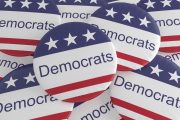
Here’s some lighthearted, some might say trivial, news on what is otherwise a dark and gloomy week in America as a result the violence, unnecessary murder, and political poison in the capital in recent days:
Elon Musk is now the richest person in the world.
On the surface, this does indeed seem of minor importance (unless you’re Elon Musk). But, it points to some interesting considerations.
First, it matters who the richest people in the world are. That is a sad truth to recognize, but we avoid the topic at our peril. The fact is, concentration of wealth has become a matter of significant concern.
The world currently has 2,153 billionaires who collectively have more wealth than 60 percent of the rest of the world’s population. That’s fine, in a strict property-ownership sense. The problem, for the rest of us, is what they do with their wealth and power. It would be fine if they merely invested as good capitalists. We should want billionaires to invest their capital in new and expanding ventures. In doing that, they would be pursuing their own self interest, but in the effort would be adding immensely to the benefit of society as a whole by employing new workers, generating new innovation, and driving trade and commerce.
Alas, some of them, perhaps many of them, have beliefs and goals that differ considerably from this economic ideal and differ also from the average citizen who believes in the “golden rule” — do unto others as you would have done to you — or, for modern libertarians, the non-aggression principle. By contrast, all too many of the world’s billionaire oligarchs hold on to concerns about things such as climate change and overpopulation. Worse, however, they tend to want to do something about those cherished problems, and in their doing is the violation.
The preeminent current example is Bill Gates, the world’s obnoxious meddling vaccinator. Not only that, but he wants to block sunlight from reaching the Earth by means of atmospheric modification efforts, and he has the wealth and power to make his plans real. The problem, though, is that millions or billions of people have their lives impacted by him, without their consent. Who gives Bill Gates the right to consider, experiment with, or attempt to block sunlight from reaching the Earth? That action could impact the lives of every person on the planet and it would be the greatest violation of the non-aggression principle ever attempted.
Gates is just one example. Former New York Mayor Michael Bloomberg is another with his efforts to use his money to modify election results (see here). Innumerable other billionaire names could be added to this list. The significant problem, by and large, is that they act as if they believe their wealth and power entitles them to control and move and change the world’s peoples — again, without their consent.
Lord Acton warned that power corrupts. This is usually applied to our political class. But, it applies equally well to the billionaire oligarchs pulling the strings.
Into this is now thrust Elon Musk, who has become the world’s richest person, surpassing Bill Gates and Jeff Bezos.
Each of these oligarchs finds themselves in the position of the wizard Gandalf in the J.R.R. Tolkien saga The Lord of the Rings. After Frodo, the Hobbit, discovers he has the One Ring, which conveys ultimate power, he tries to give it up, demanding that Gandalf take it. In Peter Jackson’s film adaptation, Gandalf replies, “Don’t tempt me Frodo! I dare not take it. Not even to keep it safe. Understand, Frodo, I would use this ring from a desire to do good. But through me, it would wield a power too great and terrible to imagine.”
Only a Hobbit, with no desire to change the lives of others, with, essentially, a fidelity to the Golden Rule and the non-aggression principle, can carry the One Ring.
To be a billionaire is to be in possession of the monetary equivalent of the One Ring. Most of the world’s richest people have proven themselves incapable of resisting the temptation to use the power that they have gained and through them it becomes, as Gandalf warned, great and terrible.
What about Musk? Will the power of his billions corrupt him? The signs are not clear. On one hand, he has warned, for instance, of the danger of artificial intelligence, which could be used in ways that would be dangerous to millions. And he seems to be distrustful of government power. He resisted the California authorities who attempted to close his business operations due to COVID and he includes this interesting tidbit in the terms of service for his new Starlink satellite ISP service:
For Services provided on Mars, or in transit to Mars via Starship or other colonization spacecraft, the parties recognize Mars as a free planet and that no Earth-based government has authority or sovereignty over Martian activities. Accordingly, Disputes will be settled through self-governing principles, established in good faith, at the time of Martian settlement.
https://www.inverse.com/innovation/spacex-mars-city-starlink-terms-of-service-declares-free-planet
And yet, Tesla, his electric car company, has benefitted from taxpayer subsidies, particularly the federal EV tax credit that made electric cars seem to be a better deal, financially, than they are.
Taxpayer-funded subsidies, however, are financed from monies removed, or transferred, from taxpayers to some beneficiary. Essentially it is a transfer of wealth that hurts those whose pockets have been pilfered.
Still, writing at the site CleanTechnica, James Ayre defends Musk’s companies and concludes of such subsidies that they are “to a far lesser degree than the fossil fuel industry, to a far lesser degree than its bailed-out auto manufacturer competitors (GM/Chevy; Fiat Chrysler; etc.), to far lesser degree than those funding smear campaigns against it, and no more than pretty much any other large company out there right now.”
The question, then, is can Musk be trusted? Will he, like his fellow billionaires Bill Gates, Jeff Bezos, and others be tempted to use his wealth to force change on the rest of the world’s population or will he resist the temptation to play God?
Ultimately, in Tolkien terms, the question to ask is this:
Is Elon Musk a Hobbit?
Let’s hope so.




